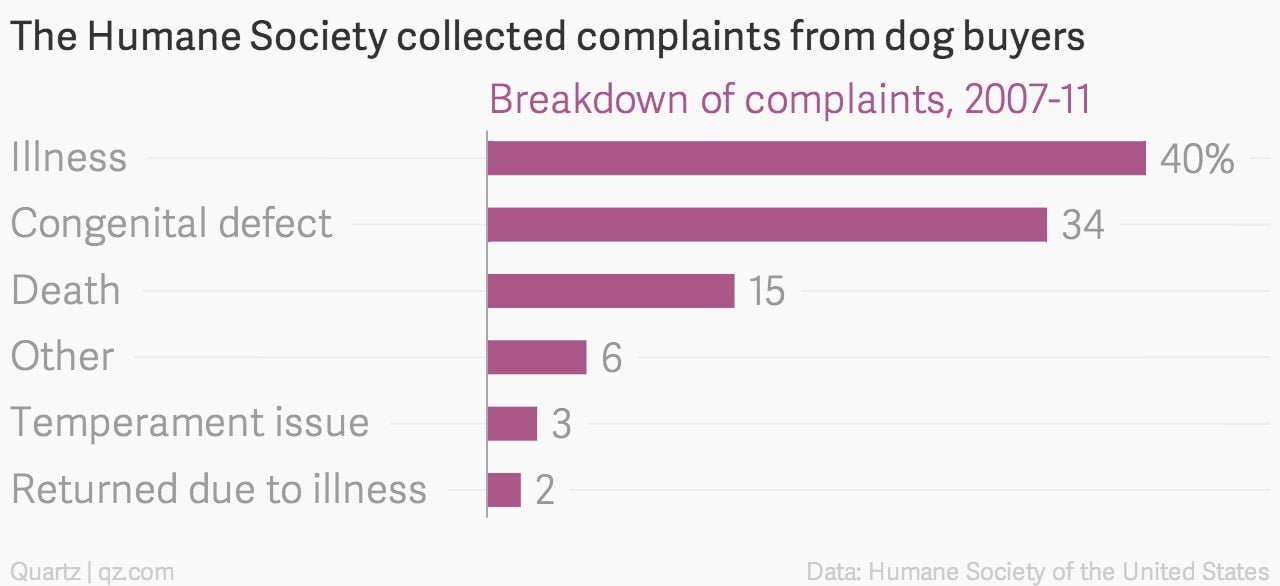Why more American pet store puppies are being banned
Americans who buy puppies from pet stores in person or online have long risked the possibility that their adorable pooch came straight from a “puppy mill,” a facility that breeds dogs en masse in poor conditions.


Americans who buy puppies from pet stores in person or online have long risked the possibility that their adorable pooch came straight from a “puppy mill,” a facility that breeds dogs en masse in poor conditions.
But activists are finally making strides against what’s become a global business. A new US federal rule in August restricts the growing imports of dogs from Russia, China, and South Korea. More than half (pdf) of US states have laws regulating the breeding or sale of puppies, and local municipalities are starting to take steps like banning puppy sales in pet stores altogether. The American federal government has added to those efforts in the past year by giving the US department of agriculture more oversight of American dog breeders and brokers.
The US Humane Society estimates (pdf) that about two million puppy mill dogs are sold in the US every year, many of which come from roughly 10,000 US puppy mills. Pet stores are big clients of those mills; the advocacy group found that more than two-thirds of puppies shipped to US pet stores come from puppy mill brokers.
The biggest pet stores have already wised up. Stores like Petsmart and Petco steer clear, partnering with local shelters to promote adoption and making money off pet supplies and pet food instead. Some 6% of the $15.7 billion in American pet story industry revenues come from sales of dogs and cats, according to Ibis World.
Tighter US restrictions should help dogs and dog owners alike. The Humane Society has found that (pdf) 65% of complaints it received about dogs between 2007 and 2011 were bought in pet stores; 35% came from brokers or breeders.
